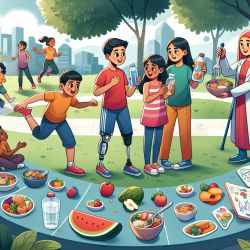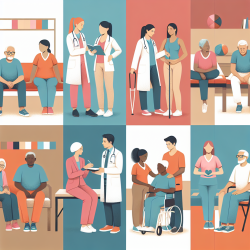Insomnia is a prevalent issue among children, affecting up to 25% of those aged 1 to 10 years. This condition not only disrupts sleep but also impacts daytime functioning across various domains such as behavior, mood, attention, and learning. Despite the effectiveness of behavioral treatments for insomnia in children, access to these interventions remains limited due to resource shortages. The recent study titled "Evaluation of an Internet-Based Behavioral Intervention to Improve Psychosocial Health Outcomes in Children With Insomnia (Better Nights, Better Days)" offers a promising solution through an innovative eHealth intervention.
The Need for Accessible Interventions
The traditional approach to treating pediatric insomnia often involves medication, which poses safety concerns due to the lack of approved drugs for children. Behavioral interventions have shown significant efficacy and safety but are underutilized due to limited availability and awareness among healthcare providers. The Better Nights, Better Days (BNBD) program aims to bridge this gap by providing an accessible internet-based solution that empowers parents with evidence-based strategies to manage their children's insomnia.
Understanding the Better Nights, Better Days Program
The BNBD program is a fully automated eHealth intervention designed for primary caregivers of children aged 1 to 10 years who experience insomnia. It leverages existing evidence-based interventions and delivers them through a user-friendly online platform. The program includes five sessions that guide parents through strategies such as healthy sleep practices, independent settling at bedtime, and managing night awakenings.
- Session 1: Introduction to sleep information and types of sleep problems.
- Session 2: Establishing healthy sleep practices and routines.
- Session 3: Techniques for independent settling at bedtime.
- Session 4: Strategies for managing night wakings and early morning awakenings.
- Session 5: Relapse prevention and planning for future developmental milestones.
Research Outcomes and Implications
The randomized controlled trial (RCT) evaluating the BNBD program involves 500 participants across Canada. The study assesses the program's impact on children's sleep efficiency using actigraphy and parent-reported sleep diaries. Preliminary results indicate significant improvements in sleep efficiency among children in the intervention group compared to those receiving usual care.
The study also explores secondary outcomes related to children's psychosocial health and parental functioning. Findings suggest that improved sleep patterns in children correlate with better emotional regulation, academic performance, and reduced parental stress.
Implementing Research Insights into Practice
For practitioners seeking to enhance their skills in managing pediatric insomnia, the BNBD program offers valuable insights into leveraging technology for effective intervention delivery. By integrating such internet-based programs into practice, therapists can overcome traditional barriers like scheduling conflicts and geographical limitations.
The success of the BNBD program underscores the potential of eHealth interventions in expanding access to care and improving treatment outcomes. Practitioners are encouraged to explore further research on internet-based therapies and consider incorporating these innovative solutions into their treatment repertoire.
Conclusion
The Better Nights, Better Days program represents a significant advancement in addressing pediatric insomnia through accessible eHealth interventions. By adopting these research-backed strategies, practitioners can contribute to better health outcomes for children and their families. As we continue to explore new frontiers in digital health solutions, the potential for transforming pediatric care remains vast.
To read the original research paper, please follow this link: Evaluation of an Internet-Based Behavioral Intervention to Improve Psychosocial Health Outcomes in Children With Insomnia (Better Nights, Better Days): Protocol for a Randomized Controlled Trial.










